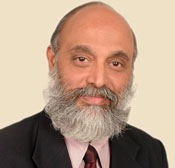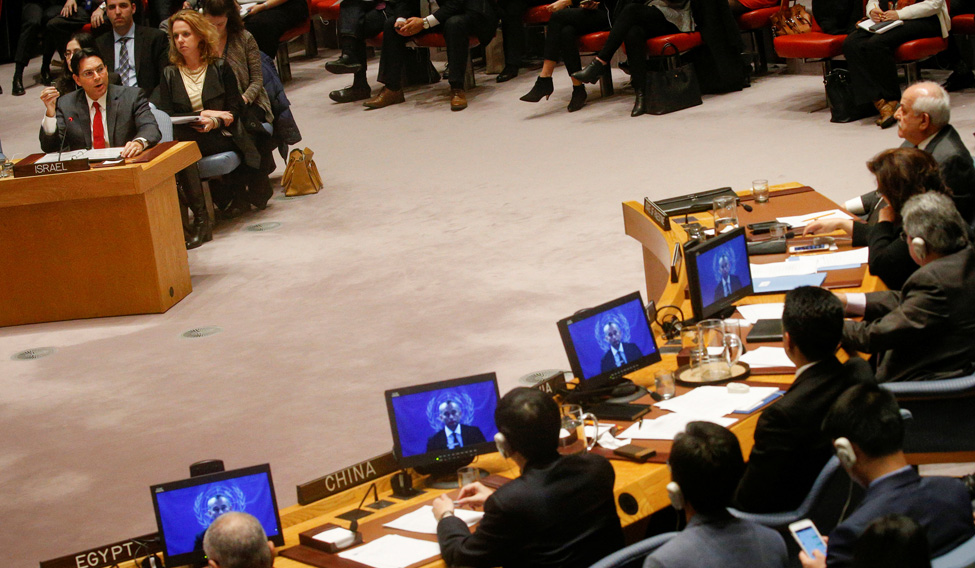The United Nations Security Council (UNSC) that met at an emergency session on Friday (December 8), to review the Trump decision related to Jerusalem, saw a rare diplomatic development; the US was isolated and rebuked by some of its oldest and closest allies.
Palestinian envoy to the UN, Riyad Mansour, indicated that he would seek another meeting of the UNSC later next week after the Arab League and the OIC (Organization of Islamic Countries) meet and arrive at a consensus, thereby enabling Palestine to seek a UNSC resolution urging the US to rescind its December 6 announcement. The OIC is scheduled to meet in Istanbul on Dec 13.
The UNSC comprises five permanent members—the US, Russia, China, France, and UK. They have already voiced their individual reservations about the Trump announcement. The UNSC also has ten non-permanent members who serve a two-year-term; five new members are elected every year, and assume office on January 1.
 (File) C. Uday Bhaskar
(File) C. Uday Bhaskar
The Friday meeting of the UNSC was followed by an unusual development; the four European members of the UNSC (France, UK, Sweden and Italy) and Germany (a non-UNSC member) read out a joint statement to the media, reiterating their disagreement with the Trump announcement, and noting that the latest US move is against existing UN resolutions on the issue of Jerusalem.
The most determined position against the US was adopted by Sweden (currently a non-permanent member of the UNSC), which asserted that the Trump announcement was in violation of international law. Reference was also made to the 1947 UN determination that accorded a special status to Jerusalem under the legal provision of corpus separatum—as a ‘separated body’—given its status as a highly revered holy site for Jews, Christians and Muslims alike.
Swedish envoy to the UN, Ambassador Olok Skoog, highlighted the December 6 announcement: "It contradicts international law and UNSC resolutions. Jerusalem is a final status issue, and can therefore only be resolved through negotiations agreed between the parties."
The UK, France, Egypt and Japan—all UNSC members and closely aligned with the US—have voiced their opposition to the Trump announcement unambiguously and some of their statements are instructive. The global consensus is that the decision about Jerusalem as the capital ought to follow the final negotiations over the long-festering Palestine issue and this was emphasised at the UNSC meeting on Friday.
The UK noted: "We disagree with the U.S. decision to move its embassy to Jerusalem and unilaterally to recognize Jerusalem as the capital of Israel before a final status agreement. These decisions are unhelpful to the prospects for peace in the region.”
The French envoy cautioned that "This (announcement ) carries the risk of taking a political conflict—which in and of itself carries risk—causing it to morph into an insurmountable religious conflict." The Egyptian ambassador warned : "This is a dangerous precedent that needs reflection."
Even Japan, that rarely opposes the US in public, stated that its position remains unchanged, and that Tokyo supported a two-state solution to the Palestine conflict, based on international law and UN resolutions.
Within the UNSC, the critical political weight lies with the permanent members and it will be instructive to note how the European members (France, UK ) harmonize their positions over Jerusalem with Russia and China. An anomalous politico-diplomatic situation is evolving, wherein the USA, which projects itself as the being committed to international law and the liberal order, is being charged with the violation of these very principles in relation to Jerusalem.
However, the US ambassador to the UN, Nikki Haley, fiercely defended Trump’s Jerusalem announcement at the UNSC. She invoked the ‘will of the American people’ and asserted that Trump was merely recognising this reality.
To my mind this is a potentially dangerous formulation—the ‘will of the people’—which is being advanced to flout international law and UN resolutions. What if Russia and China use the same principle to rationalise their transgressions ?
Welcome to a tempestuous 2018.
Bhaskar is director, Society for Policy Studies, New Delhi
Disclaimer: The views expressed in this article are solely those of the author and do not necessarily represent the views of the publication





